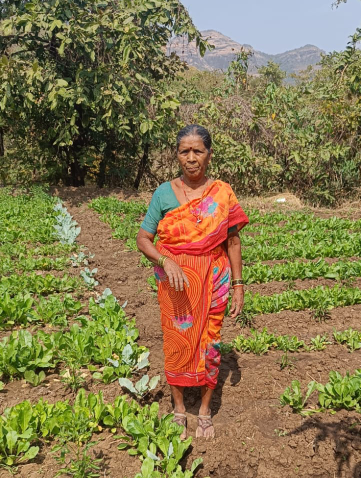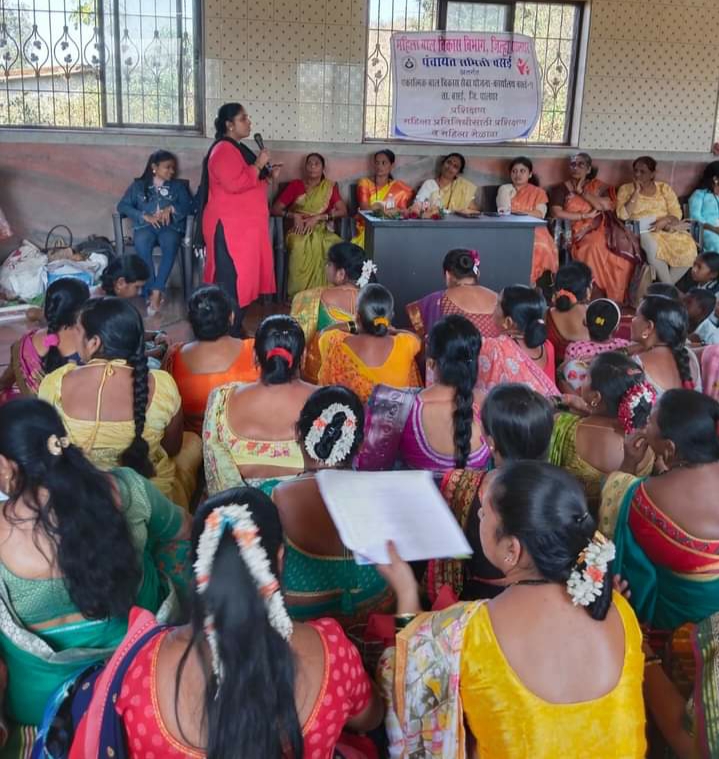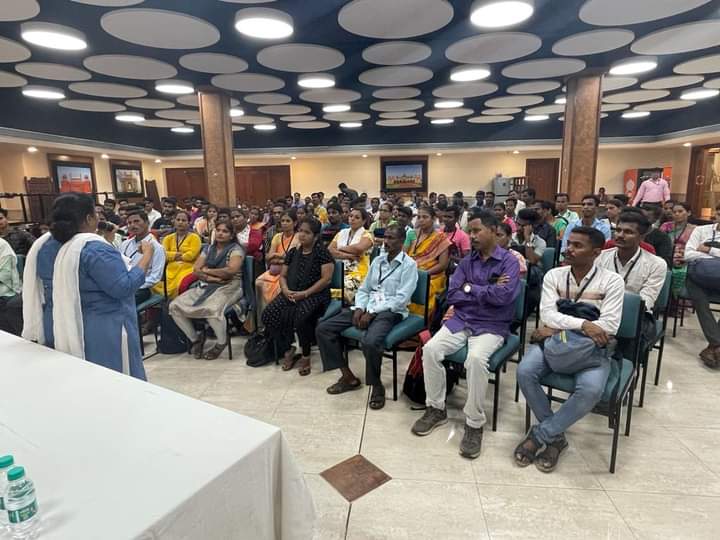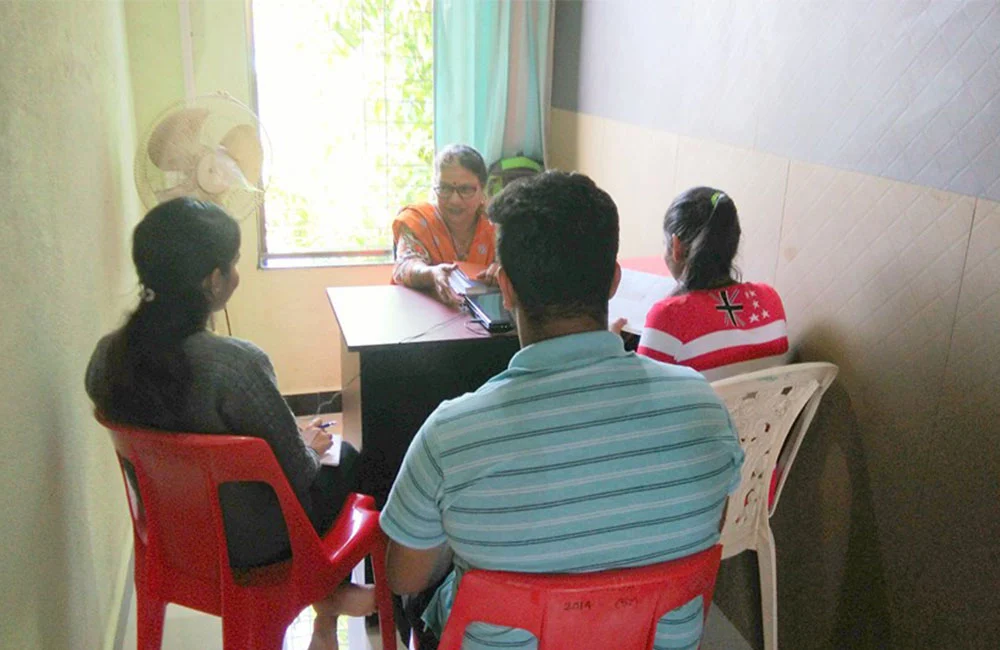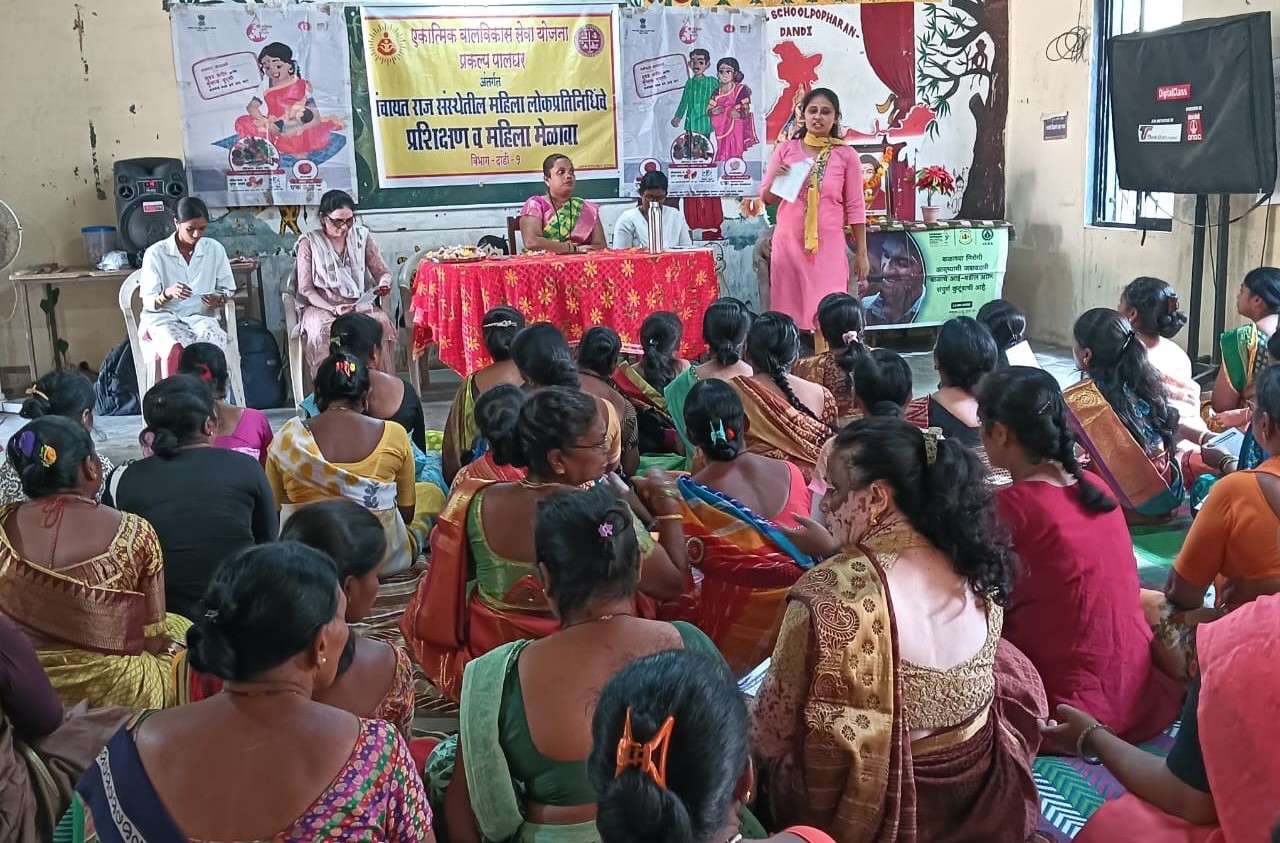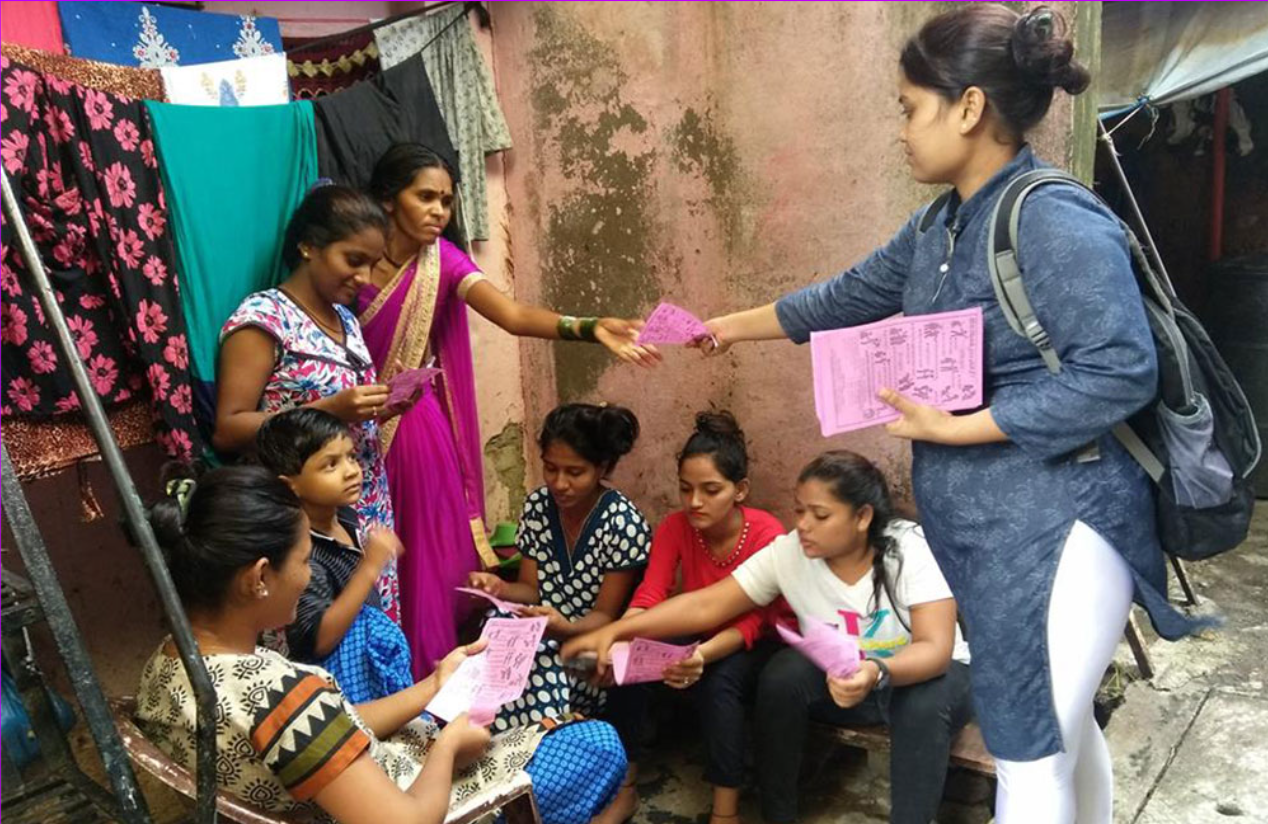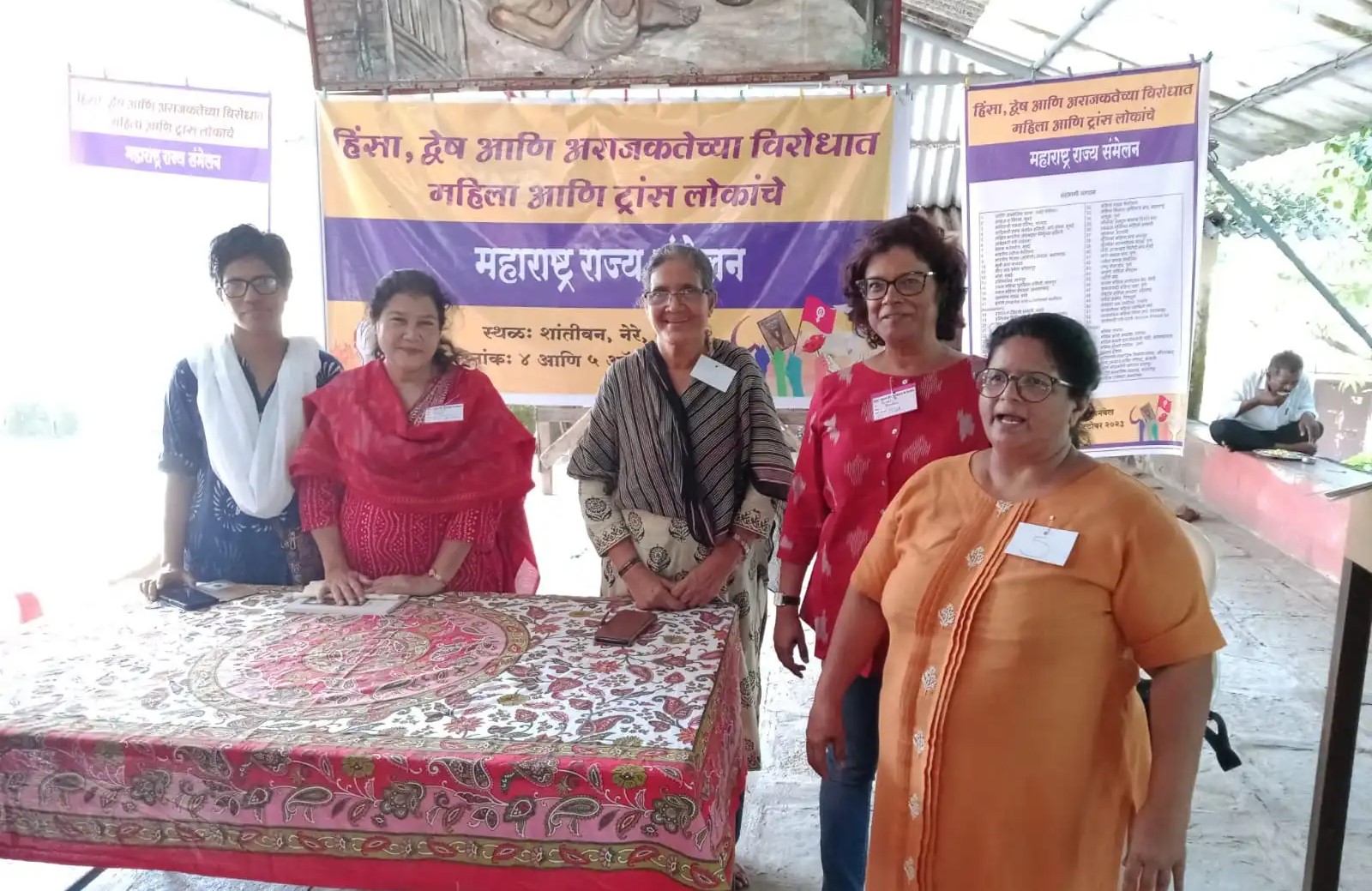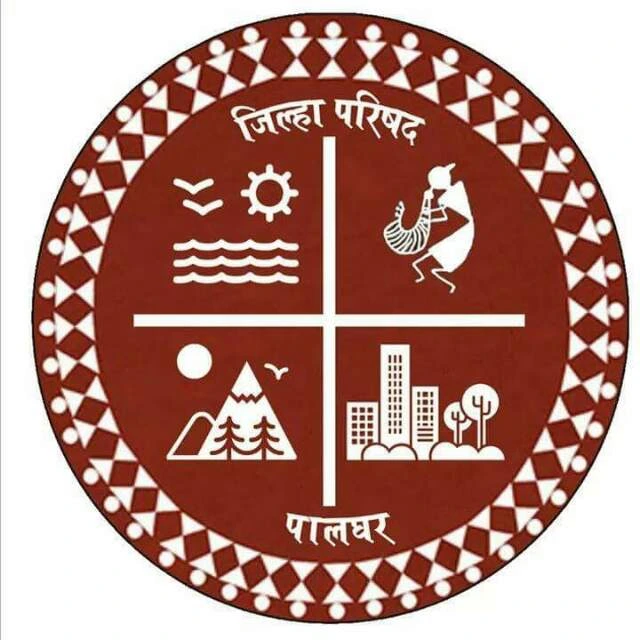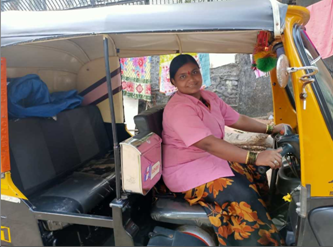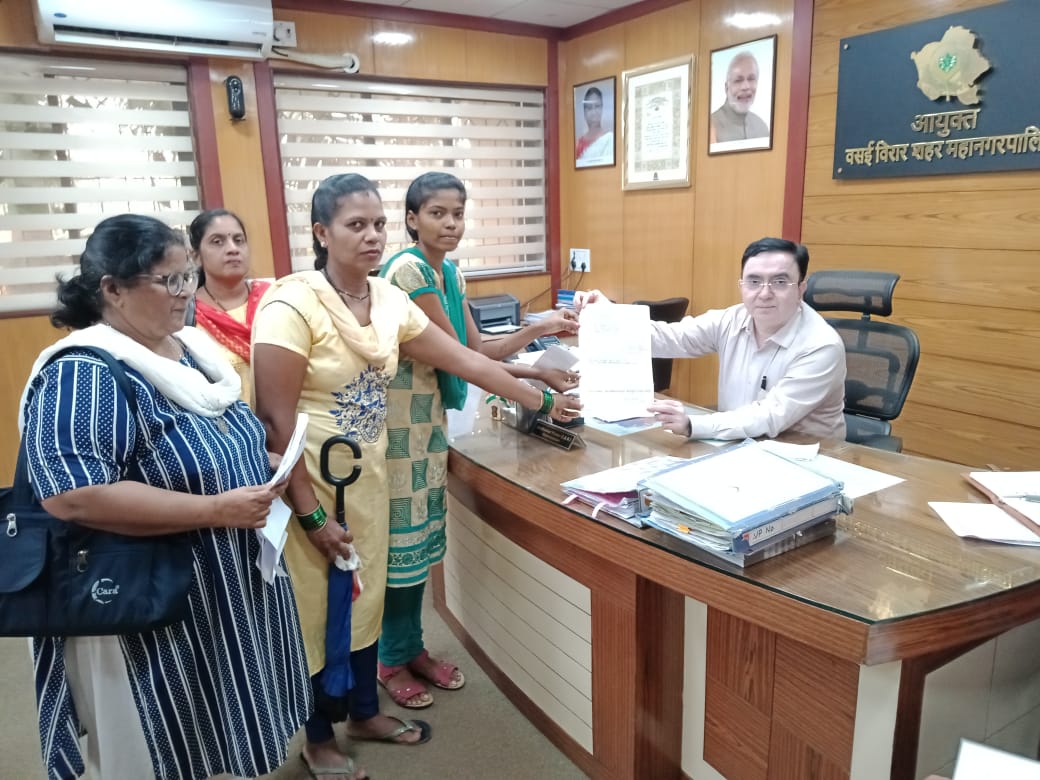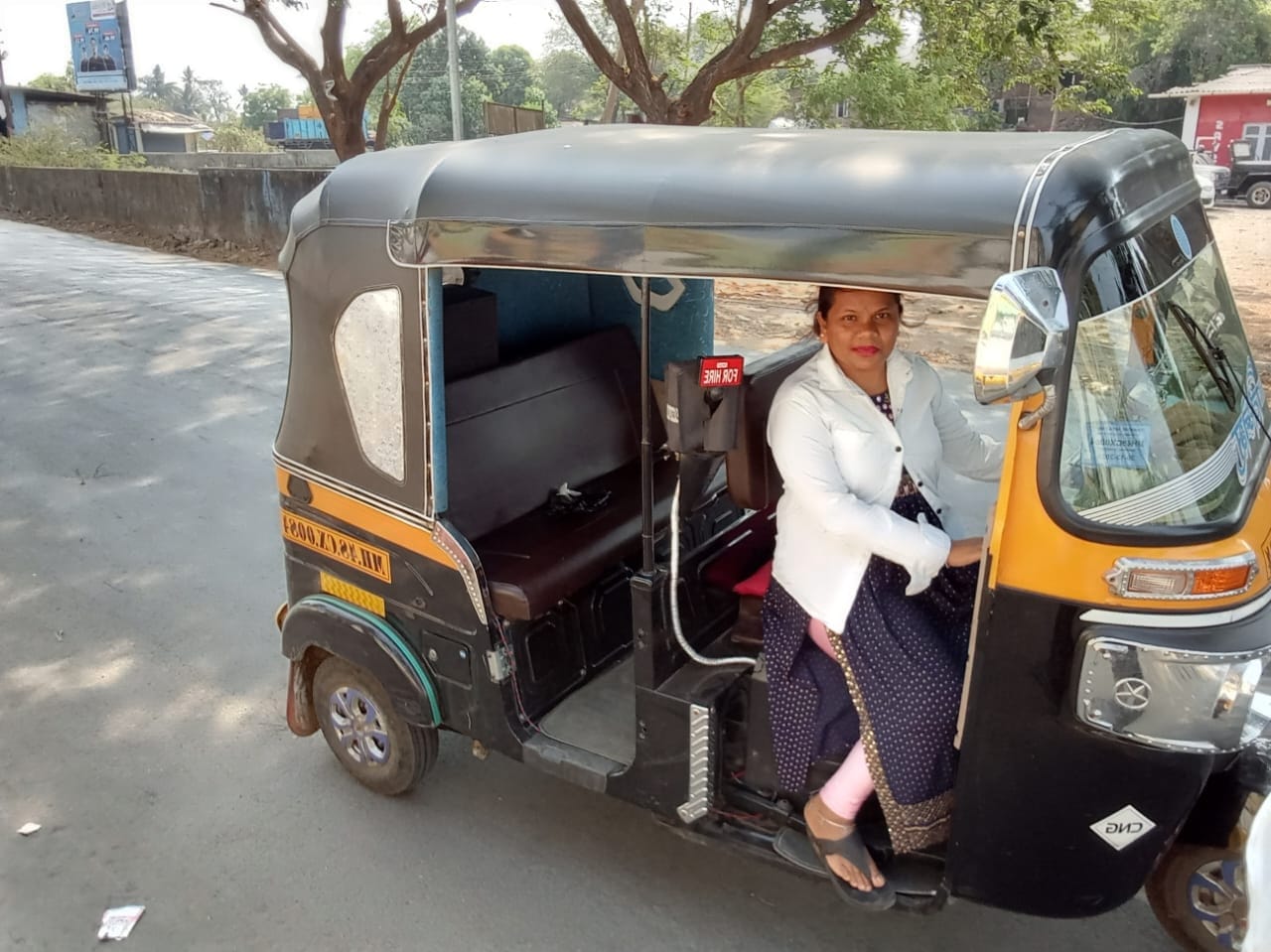Empowering Women, Bhadale Pada Savitri Santosh Vavre has been living in Bhadale Pada, Girij, for the past many years. They run their lives by doing household chores, but life in Pada means many problems to face. They have to go to a lake that is half a kilometer long to wash their clothes. Also, the most important problem is the toilet. They were given a toilet by the government, but their condition was very bad. The walls were only made of bricks and had not been plastered. And wooden doors were installed. Water was not provided. However, the villagers were using that toilet. A few months ago, the doors of their toilets were broken, making it difficult for women to use them. They had to use wooden planks while using toilets. And labor colonies have been created right in front of where the toilet was built. Therefore, using the toilet became very scary for women. So, the women of the pada would use the toilet at night, and even if they went, they would take another women of the pada along with them. And some women even used the toilet at the place where they went to work. So, they felt that toilet repair was very necessary. The Sakhya organization works in the Bhadale Pada community. A women's meeting is held there every month. At that time, in a meeting, the women of the village asked the organization for help in repairing the toilet. And the organization also extended a helping hand to them. The director and community organizer of the organization met Vasai Virar City Municipal Corporation Commissioner, Shri. Anilkumar Pawar sir, along with the women of the Bhadale Pada, and told them all about the situation. Commissioner Anilkumar Pawar promised to work at the earliest. And within the next two days, the toilet started working as well. Old toilets were repaired. They installed new doors, plastered the walls of the toilet, installed a water tank for the toilet, and provided drainage. Now the women of Bhadale Pada are using the toilet at any time without any fear. Earlier, they had to run to the toilet. She has also thanked the Sakhya organization for the help, and she is now using the toilet without fear.
